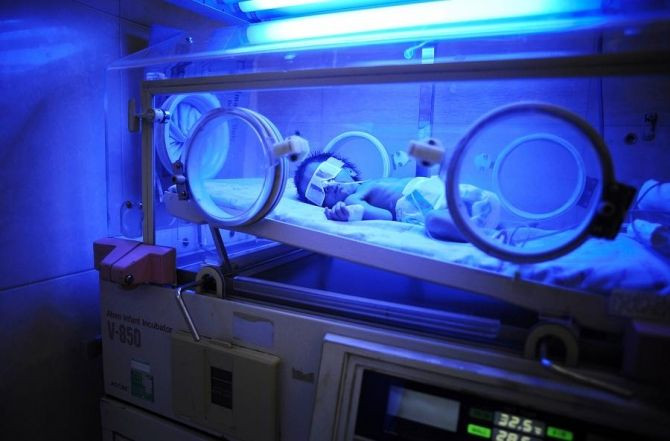Preemies Have an Increased Risk for a Range of Psychiatric Disorders Later in Life

Babies born prematurely are at an increased risk of developing a range of mental health problems later in life, researchers found.
A study, to be published in The Archives of General Psychiatry in June, found that premature babies had an increased risk for bipolar disorder, depression and psychosis.
Researchers noted that while the overall risk was low, the likelihood for developing these disorders was higher in babies born prematurely compared to babies born full-term.
Babies born before 36 weeks are considered “pre-term,” “full-term” if they are born between 37 to 41 weeks or “post-term” if they are born after 42 weeks.
In a large study looking into the link between prematurity and later admission to psychiatric hospital, researchers at the Institute of Psychiatry at King's College London and the Karolinska Institute in Sweden analyzed data from 1.3 million people born in Sweden between 1973 and 1985.
Of the 10,523 people were admitted to hospital with a psychiatric disorders, 580, more than 5 percent, of those had been born prematurely.
Researchers found that while full-term children had a two in 1,000 chance of being admitted to the hospital for psychiatric treatment after the age of 16, premature babies born before 36 weeks had double the risk at a four in 1,000 chance, and babies born before 32 weeks had triple the risk at six in 1,000.
"We found a very strong link between premature birth and a range of psychiatric disorders. Since we considered only the most severe cases that resulted in hospitalization, it may be that in real terms this link is even stronger. However, it is important to remember that even with the increased risk, these disorders still only affect 1-6% of the population," lead author Dr. Chiara Nosarti said in a university release.
The findings show that the risk varied with the disorder. Babies born before 32 weeks were 7.4 times more likely to have bipolar disorder, 2.9 times more likely to have depression and 2.5 times more likely to experience psychosis, compared to babies born at term.
While babies born between 32 and 36 weeks had less of a risk for these disorders compared babies born earlier, they were still also at an increased risk of these disorders compared to babies born full-term.
Researchers noted that past studies have also found an association between premature birth and an increased risk of schizophrenia, but the latest study is the first study to report an association with a broad range of psychiatric disorders, including bipolar disorder, psychosis and depression.
"We believe that the increased risk of mental disorders in those born very prematurely can be explained by subtle alterations of brain development. The immature nervous system in those born prematurely is particularly vulnerable to neonatal brain injury resulting from birth complications," Nosarti said.
Each year 12 percent of American babies, or nearly half a million infants are born prematurely, according to a new report called Born Too Soon published by the March of Dimes Foundation, the Partnership for Maternal, Newborn, and Child Health, Save the Children, and the World Health Organization.
While most premature babies go on to live healthily, they are more likely to suffer intellectual disabilities, other lifelong health challenges and be hospitalized with a variety of physical problems.
Researchers stressed the importance of raising awareness of the increased risk of mental health disorders in people born prematurely and said that gestational age should be considered when investigating psychiatric disorders in young adults.
"Future investigations of the mechanisms associated with the increased risk of mental health following preterm birth may aid the early identification of high-risk children, who could then be prospectively identified and closely monitored – to decide if, when and what interventions may be appropriate," Nosarti concluded.
Published by Medicaldaily.com



























